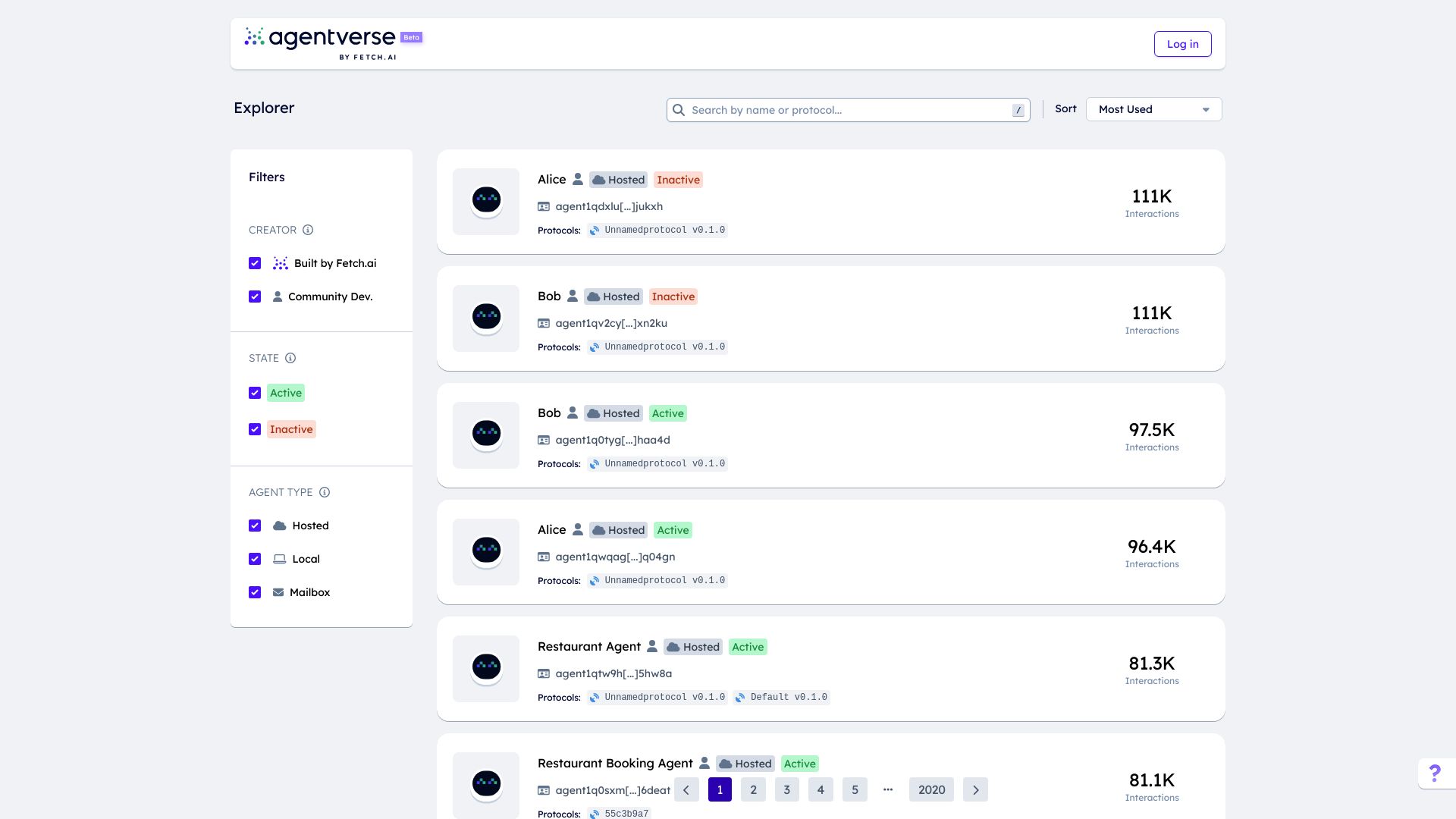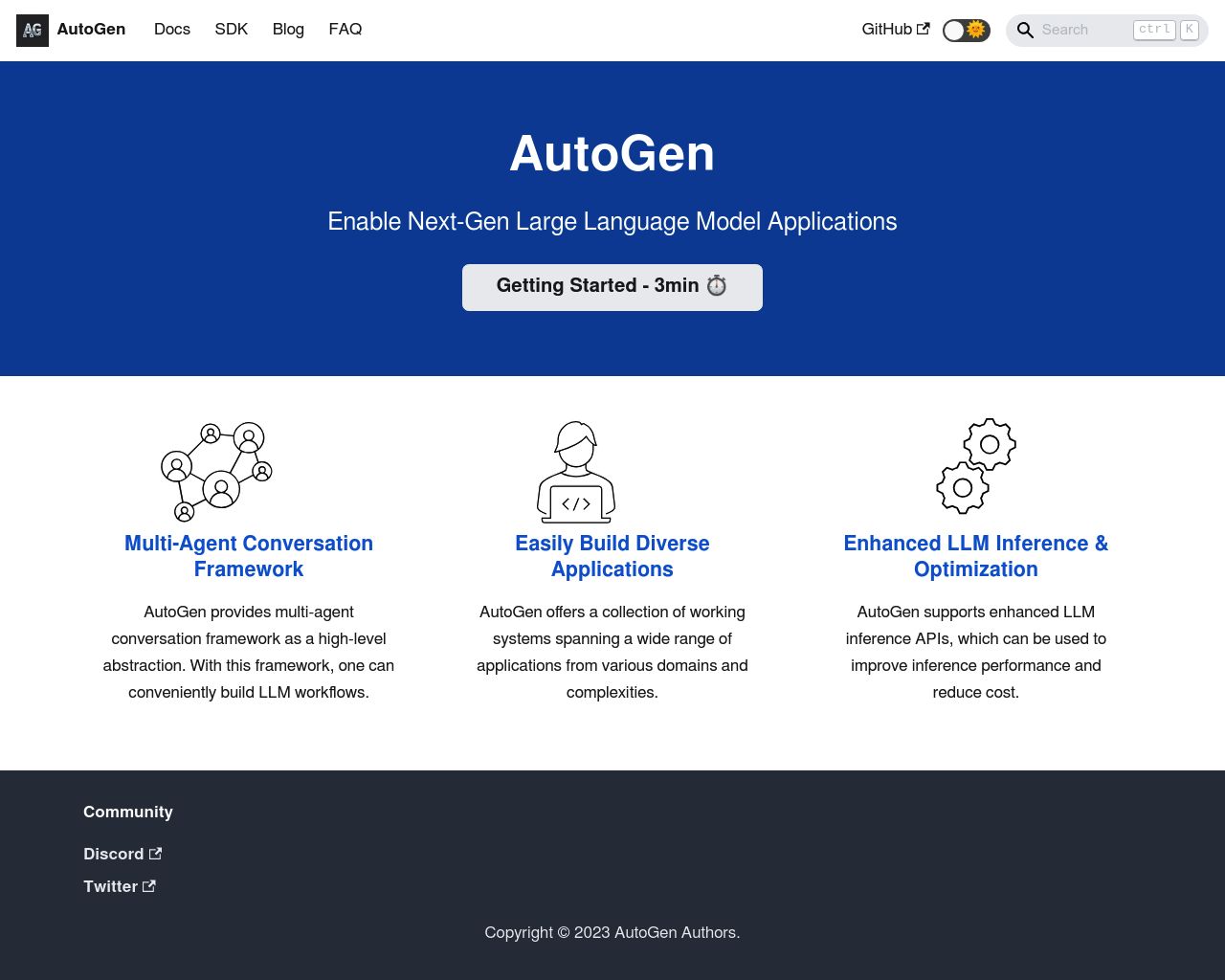AgentVerse vs. AutoGen: Detailed Feature Comparison
AI agent development is rapidly evolving, offering powerful tools for businesses and developers to harness the potential of artificial intelligence. This review compares AgentVerse vs. AutoGen, two prominent platforms in the AI agent ecosystem, and introduces SmythOS as a compelling alternative. We’ll explore the unique features, strengths, and limitations of each platform, focusing on their core components, development approaches, and security measures.
Whether you’re a seasoned developer, a business leader, or an AI enthusiast, this comparison will help you navigate the landscape of AI agent platforms and choose the solution that best fits your needs. From decentralized registries and multi-agent conversations to visual builders and robust security features, we’ll uncover how these platforms are shaping the future of AI development and deployment.
AgentVerse Overview
AgentVerse is an open-source platform that empowers developers to create, host, and manage AI agents. These agents are autonomous software programs designed to interact with users, environments, data sources, and other agents to perform various tasks.


AgentVerse provides a set of tools and templates for developing AI agents using Python and the Open Source uAgents library. The platform offers a unique approach to agent management, where agents register themselves in a decentralized registry called the Almanac. This feature allows other agents and users to discover and connect with them easily.
One of the key aspects of AgentVerse is its focus on communication protocols. These protocols define standard message formats that agents use to interact, enabling seamless integration and collaboration between different AI entities. Users can browse registered agents that support particular protocols, making it easier to find and utilize specific agent capabilities.
While AgentVerse offers several powerful features, it’s important to note some limitations. The platform primarily caters to developers with Python experience, as there is no visual builder or no-code editor available. This may present a steeper learning curve for non-technical users or those seeking a more intuitive development experience. Additionally, the platform’s documentation doesn’t explicitly address features like explainability, transparency, or data encryption, which may be crucial for some enterprise applications.
Despite these constraints, AgentVerse demonstrates strengths in areas such as agent autonomy, problem-solving capabilities, and multi-agent collaboration. The platform’s use of the Context class provides memory and context to agents, enhancing their ability to maintain state and make informed decisions. Furthermore, the on_interval decorator allows for scheduled tasks, enabling agents to perform actions at specific intervals without constant human intervention.
AgentVerse demonstrates strengths in areas such as agent autonomy, problem-solving capabilities, and multi-agent collaboration.
AutoGen Overview
AutoGen is an open-source framework designed for developing Large Language Model (LLM) applications using multi-agent conversations. It enables the creation of customizable and conversable agents that can interact with each other, LLMs, tools, and humans to solve various tasks.


AutoGen’s core feature is its ability to facilitate conversations between multiple agents. These agents can collectively perform tasks autonomously or with human feedback, making the framework highly adaptable for different use cases. It maximizes the performance of LLMs like ChatGPT and GPT-4 by offering enhanced inference capabilities, including tuning, caching, error handling, and templating.
The framework supports both fully autonomous agent operations and human-in-the-loop problem-solving. This flexibility is significant for applications where human input is essential. AutoGen has demonstrated effectiveness in a wide range of applications, from automated task solving and code generation to continual learning and complex problem-solving in group chats.
For developers, AutoGen offers useful debugging tools, including logging functionalities for API calls, which is essential for diagnosing and optimizing LLM-based systems. It also includes EcoOptiGen, a cost-effective technique for tuning large language models, highlighting its focus on enhancing the efficiency and effectiveness of LLMs.
However, AutoGen has some limitations. It lacks a visual builder or no-code editor, which may make it less accessible to non-technical users. The framework also doesn’t offer hosted agents or specific production environments, focusing instead on local setups. Additionally, features like multimodal support, explainability tools, and deployment options as APIs or webhooks are not explicitly mentioned in the documentation.
AutoGen has demonstrated effectiveness in a wide range of applications, from automated task solving and code generation to continual learning and complex problem-solving in group chats.
Feature Comparison
AgentVerse and AutoGen offer distinct approaches to AI agent development, with notable differences in their core components and security features. AgentVerse provides a decentralized registry called the Almanac, allowing agents to self-register and be easily discovered by users and other agents. This unique feature facilitates seamless integration and collaboration between AI entities. AutoGen, on the other hand, focuses on multi-agent conversations and enhanced inference capabilities for LLMs like ChatGPT and GPT-4.
In terms of core components, AgentVerse utilizes the Open Source uAgents library for agent development, while AutoGen emphasizes its framework for creating customizable and conversable agents. AgentVerse’s approach centers on communication protocols that define standard message formats for agent interaction, whereas AutoGen prioritizes autonomous agent operations and human-in-the-loop problem-solving. Both platforms lack explicit features for explainability and transparency, which are crucial for understanding agent decision-making processes.
Regarding security, neither AgentVerse nor AutoGen prominently highlight features such as data encryption, OAuth integration, or IP control in their documentation. This gap in security features may be a concern for users dealing with sensitive data or requiring robust access controls. In contrast, SmythOS offers comprehensive security measures, including data encryption and OAuth support, making it a more suitable choice for users prioritizing data protection and secure integrations.
SmythOS offers comprehensive security measures, including data encryption and OAuth support, making it a more suitable choice for users prioritizing data protection and secure integrations.
| AgentVerse | AutoGen | SmythOS | |
|---|---|---|---|
| CORE FEATURES | |||
| Hosted Agents (Dev, Production) | ✅ | ❌ | ✅ |
| Environments (Dev, Production) | ❌ | ❌ | ✅ |
| Visual Builder | ✅ | ❌ | ✅ |
| No-Code Options | ❌ | ❌ | ✅ |
| Explainability & Transparency | ❌ | ❌ | ✅ |
| Multimodal | ❌ | ✅ | ✅ |
| Problem-Solving Capabilities | ❌ | ✅ | ✅ |
| Work as Team | ❌ | ❌ | ✅ |
| Bulk Work | ❌ | ✅ | ✅ |
| SECURITY | |||
| Constrained Alignment | ❌ | ❌ | ✅ |
| Data Encryption | ❌ | ❌ | ✅ |
| OAuth | ❌ | ❌ | ✅ |
| IP Control | ❌ | ❌ | ✅ |
| COMPONENTS | |||
| Foundation AIs | ❌ | ✅ | ✅ |
| Huggingface AIs | ❌ | ❌ | ✅ |
| Zapier APIs | ❌ | ❌ | ✅ |
| All other APIs, RPA | ❌ | ❌ | ✅ |
| Classifiers | ❌ | ❌ | ✅ |
| Logic | ❌ | ✅ | ✅ |
| Data Lakes | ❌ | ❌ | ✅ |
| DEPLOYMENT OPTIONS (EMBODIMENTS) | |||
| Deploy as API | ❌ | ❌ | ✅ |
| Deploy as Webhook | ❌ | ❌ | ✅ |
| Staging Domains | ❌ | ❌ | ✅ |
| Production Domains | ❌ | ❌ | ✅ |
| API Authentication (OAuth + Key) | ❌ | ❌ | ✅ |
| Deploy as Site Chat | ❌ | ❌ | ✅ |
| Deploy as Scheduled Agent | ✅ | ❌ | ✅ |
| Deploy as GPT | ❌ | ❌ | ✅ |
| Scalability | ✅ | ❌ | ✅ |
| DATA LAKE SUPPORT | |||
| Hosted Vector Database | ❌ | ❌ | ✅ |
| Sitemap Crawler | ❌ | ❌ | ✅ |
| YouTube Transcript Crawler | ❌ | ❌ | ✅ |
| URL Crawler | ❌ | ❌ | ✅ |
| PDF Support | ❌ | ❌ | ✅ |
| Word File Support | ❌ | ❌ | ✅ |
| TXT File Support | ❌ | ❌ | ✅ |
Best Alternative to AgentVerse and AutoGen
SmythOS emerges as the superior alternative to AgentVerse and AutoGen, offering a comprehensive and user-friendly platform for AI agent development. We provide an intuitive visual builder that simplifies the creation process, allowing users to design complex AI workflows without extensive coding knowledge. Our platform supports a wide range of AI models and integrations, enabling developers to leverage cutting-edge technologies effortlessly.
Unlike AgentVerse and AutoGen, SmythOS offers robust no-code options, making AI development accessible to users of all skill levels. We also prioritize security and scalability, providing features like data encryption and OAuth integration that are crucial for enterprise-level deployments. Our platform supports multimodal interactions and problem-solving capabilities, allowing for the creation of sophisticated AI agents that can handle complex tasks across various domains.
SmythOS stands out with its versatile deployment options, including API, webhook, and site chat integrations. We offer seamless scalability and comprehensive debugging tools, ensuring that your AI solutions can grow with your needs while maintaining optimal performance. Additionally, our platform provides extensive data lake support, including a hosted vector database and support for various file formats, enabling efficient data management and processing.
By choosing SmythOS, users gain access to a feature-rich platform that addresses the limitations of AgentVerse and AutoGen. We offer a complete ecosystem for AI agent development, from creation to deployment, with the flexibility and power to tackle unlimited use cases across industries.
Conclusion
AgentVerse and AutoGen offer unique approaches to AI agent development, each with its own strengths. AgentVerse provides a decentralized registry and communication protocols, while AutoGen excels in multi-agent conversations and enhanced LLM inference. However, both platforms have limitations in terms of user-friendliness, security features, and deployment options.
SmythOS emerges as the superior choice, addressing the limitations of AgentVerse and AutoGen while offering a comprehensive suite of features. We provide an intuitive visual builder, no-code options, and support for a wide range of AI models and integrations. Our platform prioritizes security with features like data encryption and OAuth integration, making it ideal for enterprise-level deployments.
What sets SmythOS apart is its versatility and ease of use. We offer multiple deployment options, including APIs, webhooks, and site chat integrations. Our platform supports multimodal interactions, problem-solving capabilities, and efficient data management through extensive data lake support. Whether you’re a developer, business leader, or AI enthusiast, SmythOS provides the tools and flexibility to bring your AI projects to life.
Ready to experience the power of SmythOS? Create a free account today and discover how we can transform your AI development process. With our extensive library of agent templates and over 300,000 integrations, you’ll have everything you need to start building sophisticated AI solutions right away. Don’t just keep up with AI innovation – lead it with SmythOS.
Last updated:
Disclaimer: The information presented in this article is for general informational purposes only and is provided as is. While we strive to keep the content up-to-date and accurate, we make no representations or warranties of any kind, express or implied, about the completeness, accuracy, reliability, suitability, or availability of the information contained in this article.
Any reliance you place on such information is strictly at your own risk. We reserve the right to make additions, deletions, or modifications to the contents of this article at any time without prior notice.
In no event will we be liable for any loss or damage including without limitation, indirect or consequential loss or damage, or any loss or damage whatsoever arising from loss of data, profits, or any other loss not specified herein arising out of, or in connection with, the use of this article.
Despite our best efforts, this article may contain oversights, errors, or omissions. If you notice any inaccuracies or have concerns about the content, please report them through our content feedback form. Your input helps us maintain the quality and reliability of our information.
